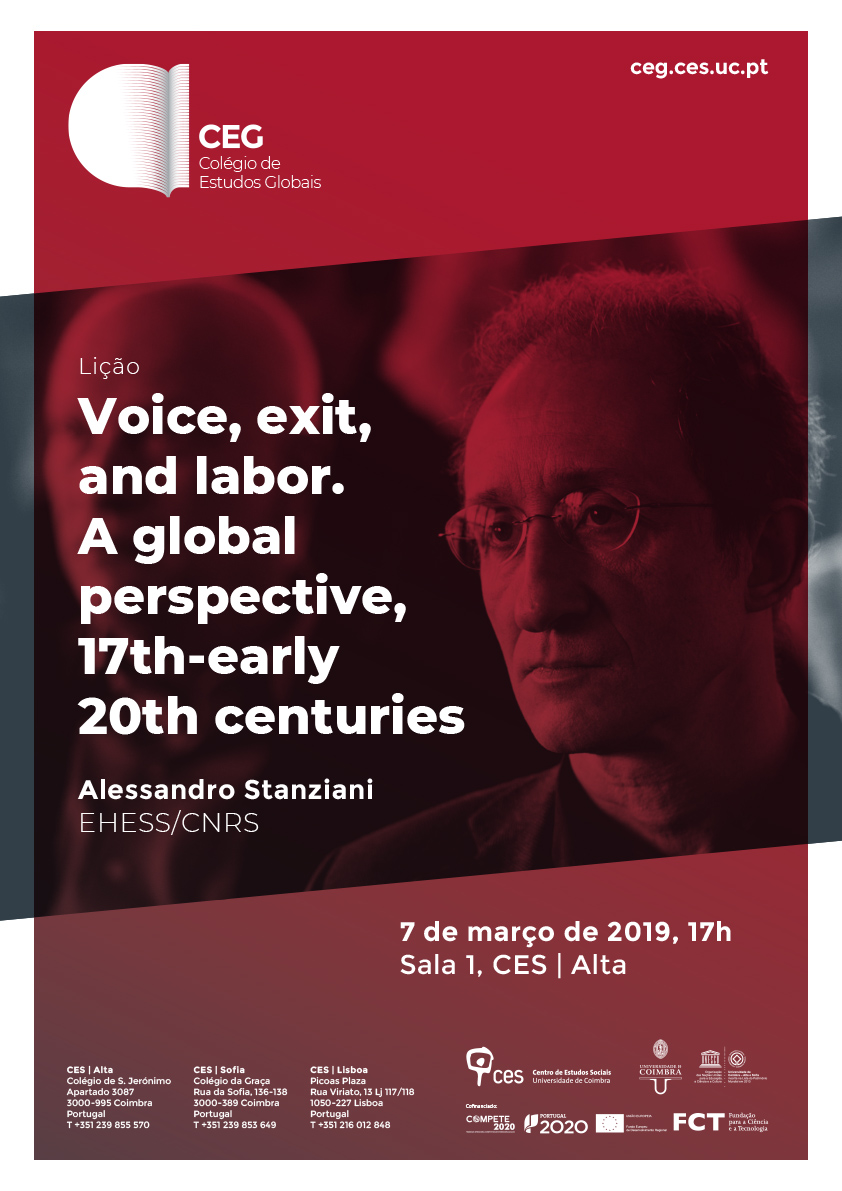Lecture | College of Global Studies
Voice, exit, and labor. A global perspective, 17th-early 20th centuries
Alessandro Stanziani (EHESS/CNRS)
March 7, 2019, 17h00
Room 1, CES | Alta
Abstract
Runaways, fugitives and deserters are usually related to two categories of people: Maroon slaves or conscripts. We will take a different position, arguing that the history of runaways – from the mid-seventeenth century through the end of the nineteenth century in Europe and well into the twentieth century in other parts of the world – is a global history in the sense that it concerned most working people – slaves, serfs, indentured immigrants, bonded persons, apprentices and servants as well as convicts, seamen and soldiers. Runaways do not just express resistance face to oppression, coercion and exclusion, or even to the industrial world, but something deeper, something structural and troubling: the relationship, in labour activities, between economic order, political inclusiveness/exclusion and social stability. The persistence of runaways between the 17th and the early 20th century, at least, reveals the tensions in transforming societies through this period, and thus, modernization, imperial expansion, revolutions and industrialization.
Nota biográfica
Alessandro Stanziani - Professor of Global History at the School for Advanced Studies in the Social Sciences (EHESS) and Research director, Centre national de la recherche scientifique (CNRS), being the current director of the Institute of Global Studies, PSL University, Paris. He got a first PhD in Economics, University of Naples, 1991, then a PhD in History, EHESS, 1995. Habilitation was made at the University of Lille, 2003. His main interests and fields are: Global history; Labor history; Russian history, 16th-20th century; Indian ocean, labor, 18th-19th centuries; Economic, business and labor history, Europe (France, Britain), 18th early 20th century; Food history, 18th- 20th century.
His main individual books include: L'économie en révolution. Le cas russe,1870-1930, Albin Michel, L'évolution de l'humanité, 1998; Histoire de la qualité alimentaire, 18e-20e siècles, Paris, Seuil, 2005; Rules of exchange. French capitalism in comparative perspective, 18th-20th centuries, Cambridge, Cambridge University Press, 2012 (Paperback 2014); Bâtisseurs d’Empires, Russie, Chine, Inde, Paris, Liber, 2012; Bondage, Labor and rights in Eurasia, 17th-20th centuries, New York, Berghahn, 2014 (Paperback 2015); After Oriental Despotism. Warfare, Labour and Growth in Eurasia, 17th-20th centuries, London, Bloomsbury, 2014 (Paperback 2014); Seamen, immigrants and convicts in the Indian Ocean, 18th-early 20th centuries, New York and London, Palgrave, 2014. Labor in the fringes of Empire. Voice, exit and the law, Palgrave, 2018.
He is also editor or co-editor of 8 books and 150 peer review articles and chapters in Annales, Comparatives Studies in Society and History, Kritika, Slavic Studies, Modern Asian Studies, Business History, Labor History, Journal of Global History, International Review of Social History.


